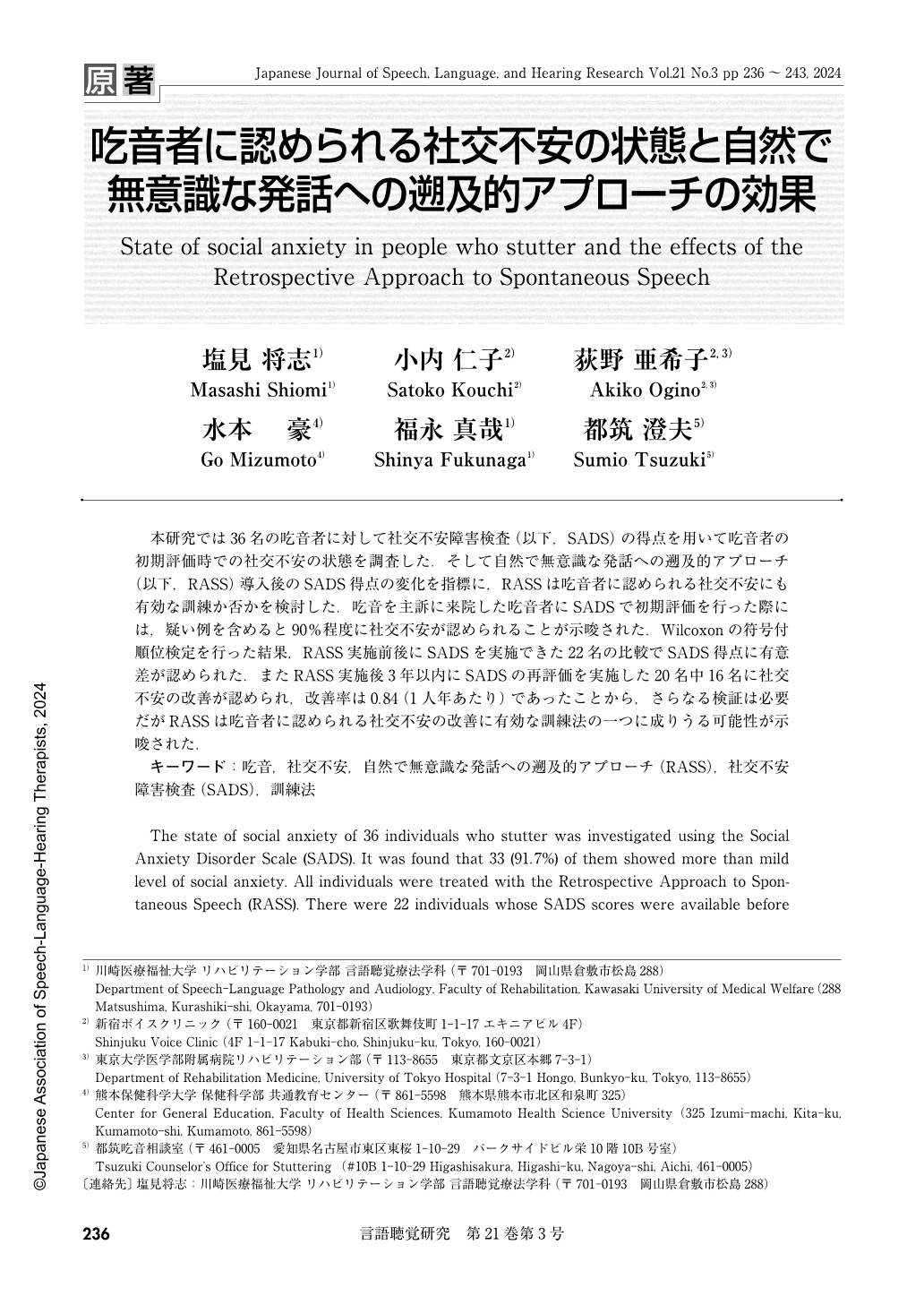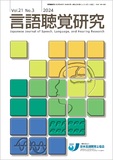Japanese
English
- 有料閲覧
- Abstract 文献概要
- 1ページ目 Look Inside
- 参考文献 Reference
本研究では36名の吃音者に対して社交不安障害検査(以下,SADS)の得点を用いて吃音者の初期評価時での社交不安の状態を調査した.そして自然で無意識な発話への遡及的アプローチ(以下,RASS)導入後のSADS得点の変化を指標に,RASSは吃音者に認められる社交不安にも有効な訓練か否かを検討した.吃音を主訴に来院した吃音者にSADSで初期評価を行った際には,疑い例を含めると90%程度に社交不安が認められることが示唆された.Wilcoxonの符号付順位検定を行った結果,RASS実施前後にSADSを実施できた22名の比較でSADS得点に有意差が認められた.またRASS実施後3年以内にSADSの再評価を実施した20名中16名に社交不安の改善が認められ,改善率は0.84(1人年あたり)であったことから,さらなる検証は必要だがRASSは吃音者に認められる社交不安の改善に有効な訓練法の一つに成りうる可能性が示唆された.
The state of social anxiety of 36 individuals who stutter was investigated using the Social Anxiety Disorder Scale (SADS). It was found that 33 (91.7%) of them showed more than mild level of social anxiety. All individuals were treated with the Retrospective Approach to Spontaneous Speech (RASS). There were 22 individuals whose SADS scores were available before and after the implementation of RASS. They all showed a significant difference in their SADS scores according to the results of a Wilcoxon signed-rank sum test. Furthermore, of the 20 individuals who were reevaluated within 3 years, 16 (80%) showed an improvement in their SADS score, at an improvement rate of 0.84/person-year. These results suggest that RASS could be an effective training method for improving social anxiety observed in people who stutter, although further verification is required.

Copyright © 2024, Japanese Association of Speech-Language-Hearing Therapists. All rights reserved.


